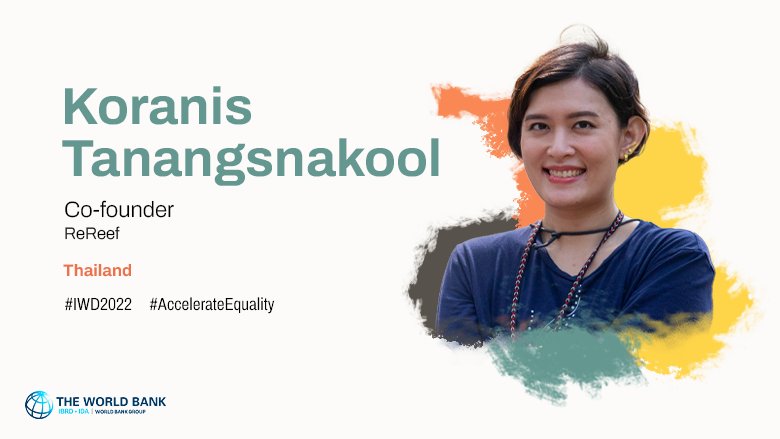Because our planet is at risk. Our own activities have caused us to experience higher temperatures, more frequent floods, the extinction of species, and extensive wildfires across many parts of the globe. Communication can contribute to raising awareness and behavior change, as well as contributing to collective actions that drive policy change and more responsible business practices.
I co-founded ReReef in hope that it could be a platform for providing information on the world's environmental problems, as well as sharing ideas and experience towards sustainability. I believe that people will conserve what they appreciate. We need to understand that we are all part of the problem and can be part of the solution.
Motivated, Persistent, Encouraging.
On climate change, we discuss the future generations’ rights to thrive in a healthy environment. While on gender equality, the rights of those who are not in a favorable situation have not been addressed. On both issues, conventional approaches have failed to include unheard voices.
The impact of this, in most cases, is on voiceless people. Not only do women face higher risks of the impacts of climate change than men; but when natural disasters occur, women have not been taken into consideration in the planning or decision-making processes. This mechanism that overlooks the needs of women and other genders make it difficult for them to adapt to climate change.
Climate change is one of the most pressing problems of our time. To tackle such complex issues, we need diversity and a wide range of perspectives. Equal representation – with the inclusion of vulnerable groups – would help us to perform more effectively; not only on the environmental agenda, but also on humanitarian issues caused by climate change.
All leaders started from day one; when there were no supporters, no followers, and they were full of doubts. If they had given up on what they believed, they would not have made any change.
I think there are lots of barriers preventing women from leadership positions; whether from roles in government, business, leading organizations, and the community. Barriers are in many forms, including biases, male-dominated cultures, and poor recruitment procedures. And a barrier is the limited opportunities for girls to access education in the first place.
We need to pay more attention to overcome these barriers to ensure that women will be equally represented in leadership roles.
My work has brought countless meaningful discussions with lots of like-minded people. We have shared ideas, and some simple conversations over lunch have led to collaborations in many activities and environmental campaigns. It also brought me opportunities to try many other roles: entrepreneur, columnist, researcher, lecturer and campaigner.
It requires hard work, determination, and persistence. Just because you don’t see many women in leadership roles, doesn’t mean you can’t be one.
Our ideas about gender have been shaped by the media. It often shows us stereotypes of how women and men are supposed to look, to act, and to treat others. This idea is harmful and obstruct gender equality.
We can help creating space where gender equality can grow by starting in daily life – at work, at home, in our community – rejecting biases or stereotypical attitudes, dividing household chores equally, and raising voices to support equal opportunities and rights.
I will continue my journey contributing to conserving nature. I look forward to strengthening my existing network and exploring new partnerships to encompass broader groups of people. I hope that ReReef can continue its role as a platform for communication and exchange of ideas.
**The views expressed in this interview do not necessarily represent the views of the World Bank Group.

